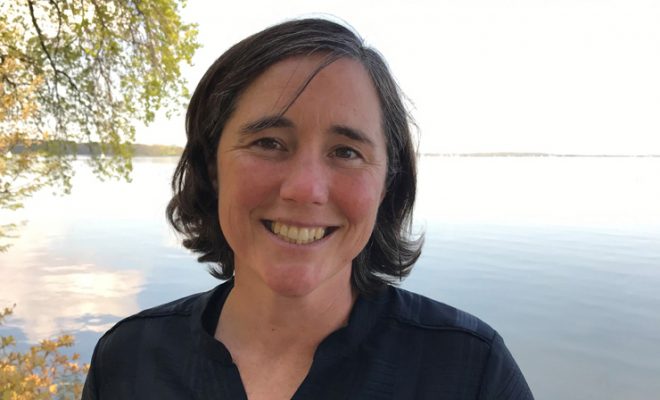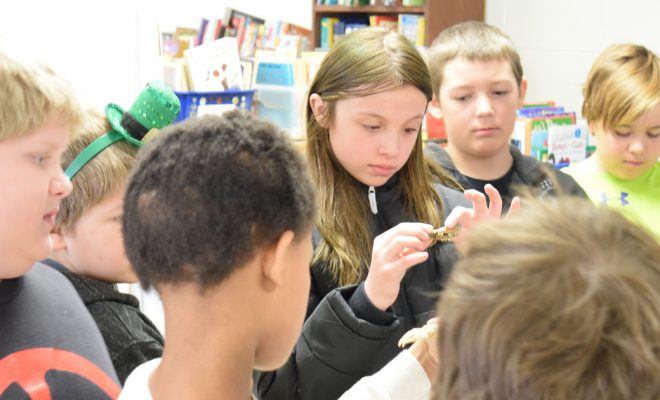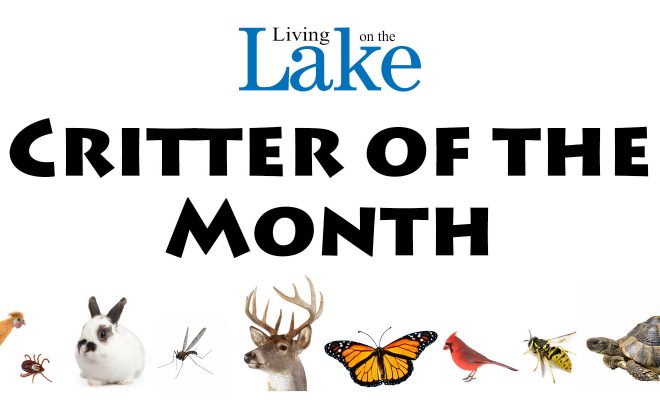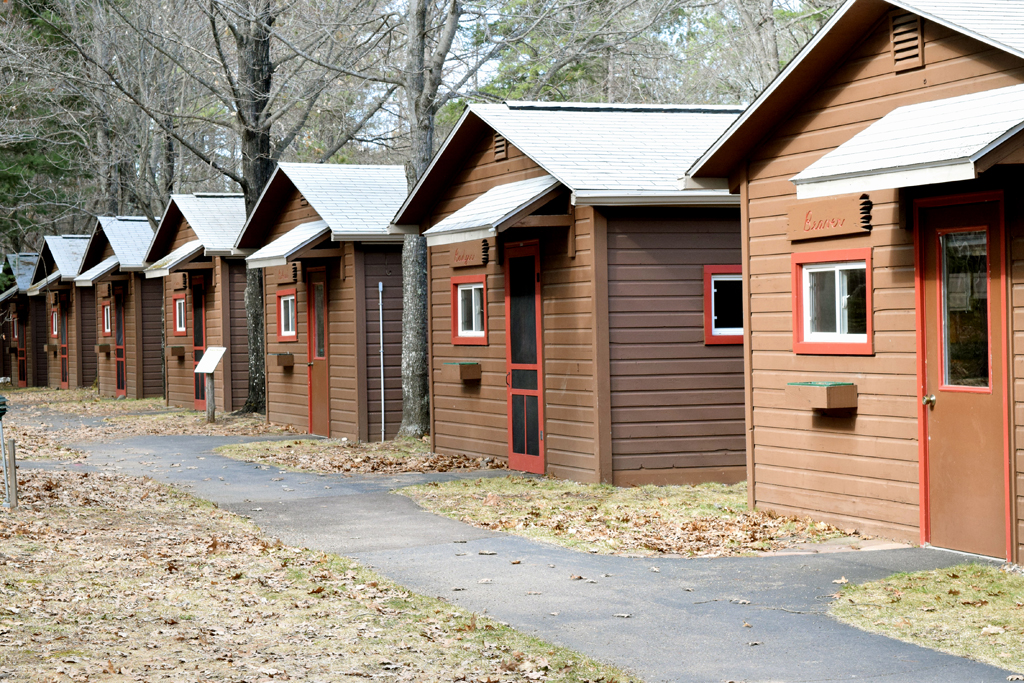Right in your own backyard: Trout Lake Station quietly conducts research for almost 100 years
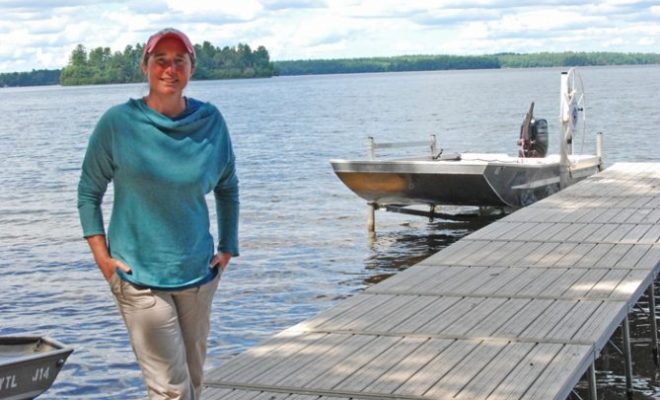
Story and photos by Lori Adler

Trout lake Station sits quietly along the shore of Trout Lake just southwest of Boulder Junction. The station has been in operation for almost 100 years.
Trout Lake Station, just southwest of Boulder Junction, has been conducting research on area lakes and bogs for close to 100 years. Yet every year during their annual open house event, residents and visitors alike remark about how they never even knew the station existed.
Trout Lake Station is one of two research field stations for University of Wisconsin-Madison’s Center for Limnology, the other being located in Madison. It is also the only research facility of its kind in the Northwoods. While University of Notre Dame has a facility in Land O’Lakes, their research centers more around forestry.
Originally established in 1925, one of the greatest aspects of Trout Lake Station is the long-term data gathered on several area lakes. Decades of data from Trout Lake, Trout Bog, Sparkling Lake, Allequash Lake, Big Muskellunge Lake, Crystal Lake and Crystal Bog is available for scientists as well as the public.
“There are not many places in the world where you have 40 years of consecutive data on a suite of lakes,” Station Director Gretchen Gerrish explained. “That data is publicly available and so scientists will develop their research questions to be able to use that to plan their questions or will build around it, so that is a really common core for the projects that go on around here.”
While many projects conducted at Trout Lake Station revolve around this historical data, research is being conducted all over the Northwoods. With 2,500 lakes within a 30-mile radius of the station, there are plenty of other opportunities as well.The station hosts several resident scientists as well as visiting researchers and students and covers a breadth of research topics.
“Limnology, that word is inland lakes and waters,” Gerrish said. “But we definitely have researchers that span that riparian and forest boundaries, but most of the research that takes place here is linked to lakes one way or another. Most of the landscape here is linked to lakes one way or another, so that is the common link.”

Electro fishing is conducted at night using special equipment. Leads are placed in the water which deliver a small electric charge, temporarily stunning the fish. No harm is done to the fish with this process, but it greatly aids with scientific research. (submitted photo by Bethany Prochnow)

Graduate researcher Charles Olmsted (who works with Trina McMahon, UW-Madison Department of Bacteriology) is examining samples for his “bog battery” project at Trout Lake Station this summer. He is studying the energy-producing capabilities of organisms found in bogs.

Several researchers at Trout Lake Station are studying crayfish.
Current research includes many fascinating topics. There’s a study on the decline of the walleye with an experiment on McDermott Lake where all the pan fish in the lake are being removed to see how that affects walleye populations. A study is being conducted on using bog organisms to generate energy, creating what the scientist is calling “bog batteries.” Another researcher is studying the phenomenon of “fairy rings” in water shield growth. These floating plants normally grow along the edge of lakes but an area where they are growing in doughnut-like circles is being studied. Another study is looking to see how moonlight affects zooplankton activity. There are studies happening on all types of invasive species, on algae blooms, and on threatened species. Research is even planned for this winter where studies under the ice will take place.
UW-Madison provides the station with a number of tools to do their research. There are many boats, including one that is used for electro-fishing, a technique where an electric charge temporarily stuns fish. Several snowmobiles and sleds are available for winter use with a new Argo, a multi-wheeled amphibious ATV, being purchased this year to allow for safer ice and snow navigation. There are several labs and research stations as well as a library and conference room. Cabins ranging from rustic to modern are available as well, allowing researchers to stay on site.

One of the many pieces of equipment at Trout Lake Station, this boat is used for electro-fishing.

Laboratories, like this one at Trout Lake Station, provide scientists with the research stations and equipment needed for their projects. Trout Lake has several labs, along with a library and conference room for use by researchers and students.

Both modern and rustic cabins at Trout Lake Station allow scientists to live on site while conducting research.These particular cabins are some of the original station buildings.
In addition to the resident and visiting scientists, the station hosts students from all over the state who come to the station to conduct the field portions of their courses. The station also provides area school groups with a chance to visit in the winter to learn about life under the ice. There are also some community events such as the Science on Tap series held at Minocqua Brewing Company and the annual open house where visitors can learn all about the current research.

Trout Lake Station holds an open house annually in August, inviting area residents and visitors a chance to tour the station and learn about the research conducted there.
While the Northwoods often seems isolated from the rest of the world, research opportunities for freshwater science in the area are unmatched. Add the decades of historical data, and scientists have opportunities to study changes in the environment not found in many other places.
As a quote from E. A Birge, original founder of Trout Lake Station, so eloquently explains, “The lake is the one true microcosm, for nowhere else is the life of the great world, in all of its intricacies, so clearly disclosed to us in the tiny model offered by the inland lake.”
Trout Lake Station will continue to provide access to that microcosm,quietly studying area waters with no disruption to area visitors and residents and with little fanfare. And yet, the work done at Trout Lake will ultimately impact areas all throughout Wisconsin as well as the entire world.
Leave a reply
You must be logged in to post a comment.

